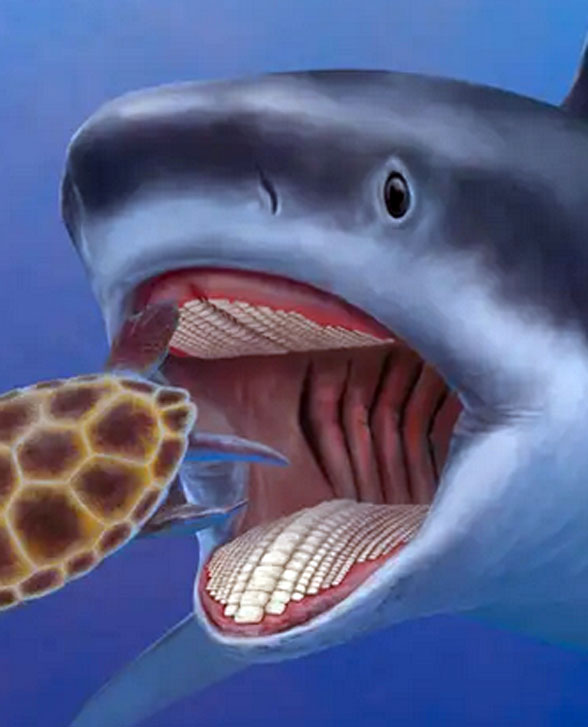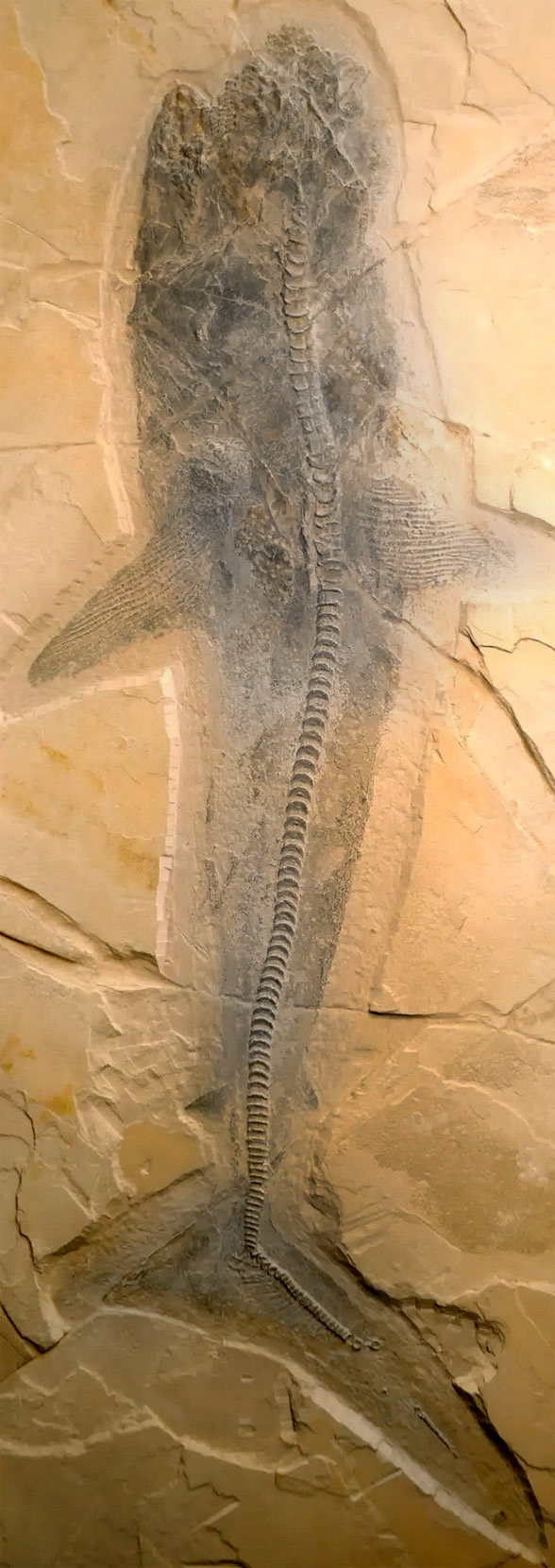From theguardian.com
“Fossil experts say they have gained unprecedented insights into a type of enormous prehistoric shark, after finding complete skeletons of the creatures. The specimens, discovered in small quarries in north-eastern Mexico within the last decade, belong to Ptychodus – a creature that roamed the seas from around 105m to 75m years ago.

Figure 1. Ptychodus illustration from theguardian.com website. Note the pavement teeth.
“Ptychodus fossils had turned up before but with its bones made of cartilage, which does not mineralise well, many were isolated teeth, which were huge and unusual. As a result, it was difficult to pin down exactly what Ptychodus looked like and where it sat on the evolutionary family tree.”
“The team say the plethora of features preserved within the specimens, including its fin skeletal anatomy, enabled them to carry out a fresh analysis of where Ptychodus sits on the evolutionary family tree. The results reveal it was a kind of mackerel shark – a group that includes the extinct gigantic shark megalodon and the great white shark that inhabits oceans today.”
The large reptile tree (LRT, 2318 taxa) recovered the same results.

Figure 2. Ptychodus fossil from theguardian.com. This one is different from the one stolen and recovered.
“Taken together, the team say the findings suggest Ptychodus hunted prey in open water, with its meals probably comprising sea turtles and ammonites rather than creatures such as clams that dwelled on the sea floor, as had previously been thought.”
“new fossils suggest it had a maximum length of about 9.7 metres”
The link in the publicity to the Royal Society paper
has a flaw. Perhaps that will be repaired soon. A link from Wikipedia is shown below. The paper is currently behind a paywall.
References
Vullo R et al (11 coauthors 2024. Exceptionally preserved shark fossils from Mexico elucidate the long-standing enigma of the Cretaceous elasmobranch Ptychodus. Proceedings of the Royal Society B: Biological Sciences 291.
https://doi.org/10.1098/rspb.2024.0262
Publicity
theguardian.com
